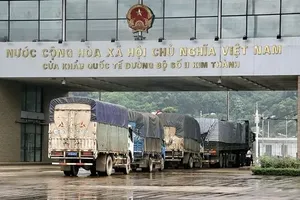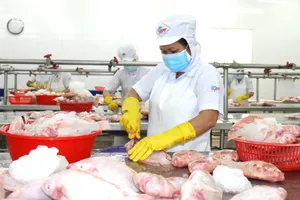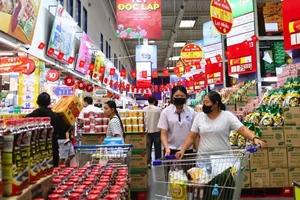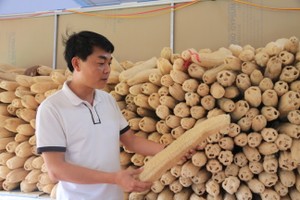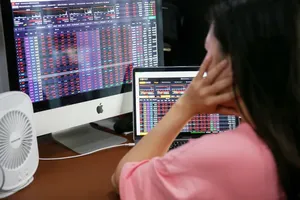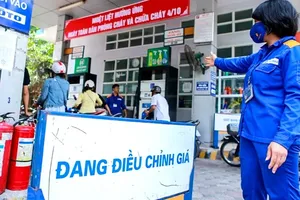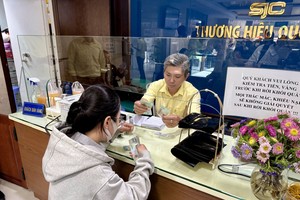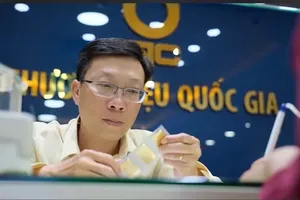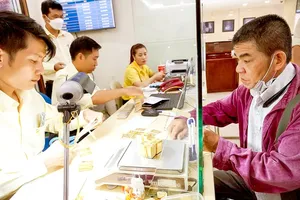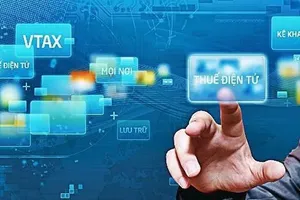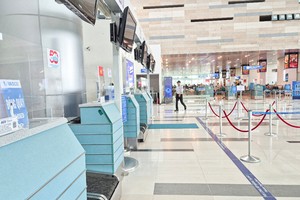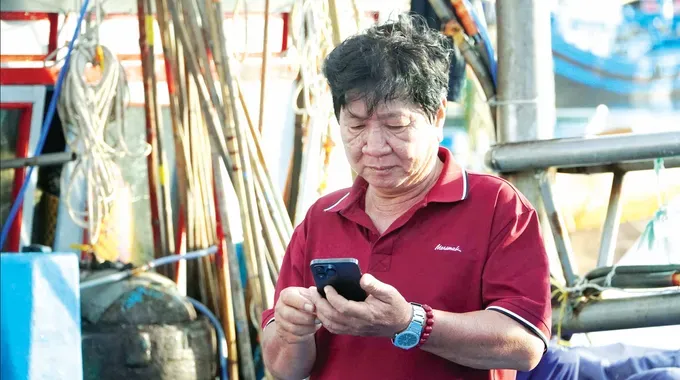
In the memories of many older fishermen, turbulent nights at sea were once tethered to a small radio on the cabin roof, its crackling static interspersed with a tinny voice. Storm warnings were often delayed, and a weak signal meant silence.
“In the past, going to sea was like gambling with fate”, recalled 62-year-old Nguyen Van Tam from Phan Thiet Ward of Lam Dong Province as he mended a net. “You could only guess at the weather."
Today, the scene is starkly different. On the deck of an old boat, a smartphone in a waterproof pouch glows brightly. With just a few taps, a fisherman can access detailed maps of sea currents, wind direction, and wave forecasts. The technology has also erased the immense distances of the open ocean.
Late at night, a young fisherman like Tran Van Phuc of Mui Ne Ward (Lam Dong Province) can lean against his cabin and make a video call. “Seeing my daughter studying, hearing my wife’s voice... it makes me feel less homesick,” he shared with a smile.
Out on the water, some young fishermen have become accidental content creators. Nguyen Minh from Vinh Tan Commune, started posting simple clips of his crew hauling in shimmering silver nets under the moonlight. To his surprise, they went viral. “I just posted for fun”, he said, “but people loved it, saying it felt interesting and authentic. I became a TikToker and YouTuber without even realizing it.”
The digital wave has also transformed the fishing port of Phan Thiet. The chaotic haggling of the past has been replaced by a new efficiency. Many buyers now “pre-order” their seafood via social platforms like Zalo or Facebook while the boats are still at sea.
“My entire catch for today was already sold online”, said 42-year-old Nguyen Van Quang, showing a phone drenched in sea mist just after docking. “When we make a catch, I snap photos and videos and send them to my buyers to ‘close the deal’. Sometimes, the fish are sold out before they’re even off the boat.” Some fishermen even livestream their hauls, creating a vibrant “online fish market” right from their decks.
Beyond connecting them to markets and family, the smartphone has also become a powerful ally in the critical fight against Illegal, Unreported, and Unregulated (IUU) fishing.
In 2024, to address the recommendations from the European Commission (EC) and work towards lifting the IUU “yellow card”, local authorities in Lam Dong Province implemented a new electronic seafood traceability system software, eCDT VN. This is a crucial tool for creating transparency in fishing operations.
Integrated directly onto the fishermen’s smartphones, eCDT VN digitizes the entire compliance process: vessel check-in and check-out at port, catch volume declarations, electronic logbooks, and the certification of origin.
“The old paperwork took a lot of time and was prone to errors”, shared fisherman Nguyen Van Binh from Mui Ne Ward. “Now, with a few taps on my phone, the information is stored clearly and accurately. We also have more peace of mind knowing our catch is properly certified.”
The system is not just convenient for fishermen; it also allows authorities to manage seafood volumes more effectively and quickly detect discrepancies. Head Nguyen Thanh Thu of the Phan Thiet Fishing Port Management Board (Lam Dong Province), confirmed its success.
“After one year of implementation, our local fishermen are now accustomed to using the software”, he said. “It ensures complete and accurate declarations, which is a major contribution to combating IUU effectively.”
Ultimately, the implementation of eCDT VN does more than just address the “yellow card” issue. It enhances the image and reputation of Vietnamese seafood on the international stage. As this tool becomes more widely and effectively used, it will open up new markets and increase the value of the nation’s seafood exports.
